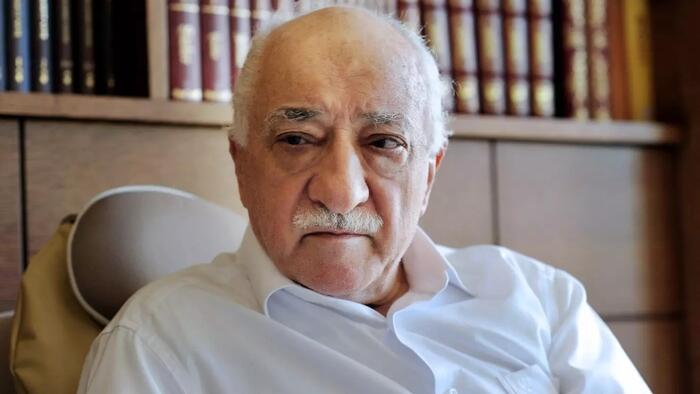Fethullah Gulen, the influential Turkish religious leader and founder of the Gulen Movement, passed away at the age of 83 in Pennsylvania. His death marks a significant moment in Turkish politics, especially given the controversial legacy he left behind. Gulen, who had been living in the U.S. since 1999 for health reasons, was a prominent figure accused by the Turkish government of orchestrating the failed military coup in July 2016, which resulted in substantial loss of life and had profound implications for the nation. While Gulen and his followers vehemently denied these allegations, his movement’s involvement remains a topic of consensus among Turkish society and even among those opposed to the ruling Justice and Development Party (AKP). His official website, Herkul, announced his passing and indicated that further details about his health and funeral would be released soon.
Born in 1941, Gulen emerged as a key religious figure in Turkey during the 1970s, transforming his belief system into a well-organized global movement known for setting up schools across more than 100 countries. Drawing on the teachings of the late Islamic cleric Said Nursi, Gulen’s movement expanded and positioned itself within Turkish politics, initially aligning with the conservative movement led by President Recep Tayyip Erdogan. This partnership allowed Gulen’s followers to infiltrate the police, judiciary, and military, capitalizing on a shared objective to reduce the dominance of secularism in Turkish governance—an endeavor that stemmed from a historical pattern of state suppression of Islam.
Gulen’s increasing influence coincided with Erdogan’s rise to power as prime minister in 2003, providing mutual benefit as both strengthened their positions against a military apparatus that had long constrained political Islam. However, this alliance began to fracture in the wake of several political events, including Turkey’s response to the 2010 Israeli attack on a humanitarian flotilla and the rising complexity of Turkish-Kurdish relations. The interpretations and reactions to these incidents sparked a divergence between Gulen and Erdogan, with Gulen opting for neutrality during the pivotal Gezi Park protests in 2013, which positioned him at odds with Erdogan’s government.
The final rupture came in late 2013 with a corruption scandal that implicated Erdogan’s ministers, which the president attributed to Gulen’s influence over state institutions. As Erdogan emerged victorious in subsequent local elections, he initiated a campaign against the Gulen Movement, labeling its members as terrorists and systematically purging them from government roles. Following the failed coup attempt in July 2016, these purges escalated dramatically, leading to the dismissal and arrest of thousands of civil servants as part of an extensive crackdown on Gulen-linked entities, which were designated as a terrorist organization by the state.
Gulen’s continued presence in the United States became a contentious issue, straining diplomatic relations between Washington and Ankara, especially as Turkey demanded his extradition. The U.S. government’s insistence on a lack of substantive evidence linking Gulen to the 2016 coup further complicated the situation. Additionally, despite operating numerous charter schools in the United States and establishing lobbying efforts to advocate for human rights in Turkey, the Gulen Movement has faced internal challenges. Notably, Gulen’s nephew publicly accused the leadership of being complicit in the coup attempt, a claim that has exacerbated fractures within the movement.
With Gulen’s passing, commentators speculate about a leadership crisis within the Gulen Movement. Individuals such as Cevdet Turkyolu and Abdullah Aymaz are anticipated to vie for control, adding a layer of uncertainty to the movement’s future. The political implications of Gulen’s death extend beyond organizational challenges, highlighting the intersections of religion, politics, and civil society in Turkey. As a pivotal figure whose life intertwined with the country’s tumultuous socio-political landscape, Gulen’s legacy will likely shape discussions regarding political Islam and state authority in Turkey for years to come. His death indicates not only personal loss but also the conclusion of an influential chapter in Turkey’s contemporary history, with lingering repercussions felt both domestically and internationally.

